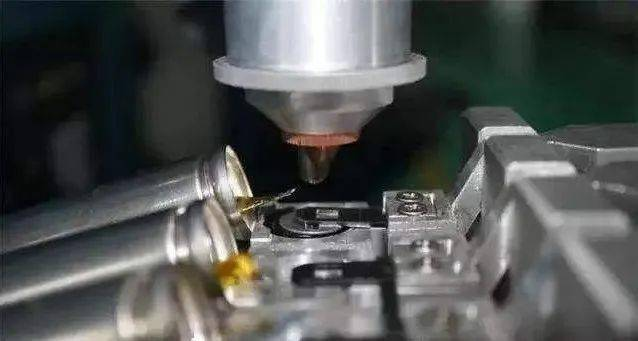Skont il-prodott tal-batterija, il-materjal tal-istrixxa tal-konnessjoni u l-ħxuna, l-għażla tal-magna tal-iwweldjar it-tajba hija kruċjali biex tiġi żgurata l-kwalità u l-prestazzjoni tal-batterija. Hawn taħt hawn rakkomandazzjonijiet għal sitwazzjonijiet differenti, u l-vantaġġi u l-iżvantaġġi ta' kull tip ta' magna tal-iwweldjar:
1. Magna tal-iwweldjar bit-transistors:
Magni tal-iwweldjar bit-transistors huma adattati għal każijiet fejn il-materjal tal-istrixxa tal-konnessjoni għandu konduttività elettrika tajba, bħal strixxi tan-nikil u indurati bin-nikil. Dan it-tip ta' magna ssaħħan il-virga tal-iwweldjar u l-istrixxa tal-konnessjoni għal ċerta temperatura permezz ta' tisħin bir-reżistenza, u mbagħad tapplika ċerta pressjoni biex tiwweldjahom flimkien.
Vantaġġi:Adattat għal materjali b'konduttività elettrika tajba, bħan-nikil. Stabbiltà għolja tal-iwweldjar, adattat għall-produzzjoni tal-massa.
Żvantaġġi:Mhux applikabbli għal materjali b'konduttività elettrika fqira, bħall-aluminju. Jista' jikkawża xi effetti termali fuq l-istrixxa tal-konnessjoni.
2. Magna ta' frekwenza għolja:
Magna ta' frekwenza għolja tutilizza kurrent ta' frekwenza għolja biex tipproduċi tisħin ta' reżistenza bejn il-biċċiet tax-xogħol li jgħaqqdu, adattata għal materjali b'konduttività fqira, bħal ħardwer.
Vantaġġi:Adattat għal materjali b'konduttività elettrika fqira. Il-ħin tal-iskarika huwa twil biżżejjed.
Żvantaġġi:mhux applikabbli għall-materjali kollha, jista' jkun hemm bżonn li jiġu rranġati l-parametri tal-iwweldjar biex jinkisbu l-aħjar riżultati.
3. magna tal-iwweldjar bil-lejżer:
Magni tal-iwweldjar bil-lejżer jużaw raġġ tal-lejżer b'enerġija għolja biex jiġġeneraw temperaturi għoljin istantanjament fuq il-biċċiet li jgħaqqdu, u jdubhom u jgħaqqadhom flimkien. L-iwweldjar bil-lejżer huwa adattat għal firxa wiesgħa ta' materjali, inklużi tipi differenti ta' biċċiet tax-xogħol tal-metall li jgħaqqdu.
Vantaġġi:Adattat għal firxa wiesgħa ta' materjali, inklużi materjali b'konduttività elettrika fqira, bħall-aluminju. Preċiżjoni għolja tal-iwweldjar u impatt baxx tas-sħana jippermettu weldjaturi żgħar ħafna.
Żvantaġġi:Spejjeż ogħla tat-tagħmir. Rekwiżiti ogħla għall-operaturi, adattati għall-iwweldjar fin.
Skont is-sitwazzjoni, huma rakkomandati tipi differenti ta' magni tal-iwweldjar:
Materjali b'konduttività tajba (eż. nikil, indurati bin-nikil): Magni tal-iwweldjar bit-transistors huma disponibbli biex jiżguraw l-istabbiltà tal-iwweldjar u r-rekwiżiti tal-produzzjoni tal-massa.
Ħardwer: Magni ta' frekwenza għolja għal veloċitajiet għoljin ta' wweldjar.
Ta' min jinnota li, minbarra l-konduttività tal-materjal, għandha tiġi kkunsidrata wkoll il-ħxuna tal-biċċa li tgħaqqad. Pereżempju, għall-iwweldjar ta' batteriji tal-litju u biċċiet tan-nikil, huwa rakkomandat ħafna li tuża l-magna tal-iwweldjar tat-transistor tagħna - PDC10000A, li tista' tiwweldja firxa wiesgħa ta' ħin ta' skariku huwa veloċi ħafna, il-ħin tal-iwweldjar jista' jilħaq il-livell ta' mikrosekondi, preċiżjoni ogħla, inqas ħsara lill-batterija, u r-rata difettuża tista' tiġi kkontrollata fi tlieta minn għaxra ta' elf.
Barra minn hekk, il-ħiliet u l-esperjenza tal-operatur għandhom ukoll impatt importanti fuq ir-riżultati tal-iwweldjar. Billi tagħżel il-magna b'mod raġonevoli, tottimizza l-parametri tal-iwweldjar, u tiżgura li l-operazzjoni tkun standardizzata, jistgħu jinkisbu konnessjonijiet tal-batterija ta' kwalità għolja, li jiggarantixxu l-prestazzjoni u l-affidabbiltà tal-komponenti tal-batterija.
Bħala konklużjoni, il-prodott li għandu jiġi wweldjat, il-materjal u l-ħxuna tal-istrixxa ta' konnessjoni kif ukoll ir-rekwiżiti tekniċi tal-iwweldjar se jinfluwenzaw l-għażla tiegħek tat-tip ta' magna tal-iwweldjar.
Aħna, Styler Company, ilna f'din l-industrija għal 20 sena, bit-tim tagħna stess ta' R&D, it-tagħmir tal-iwweldjar tagħna jinkludi l-magna tal-iwweldjar tat-transistors imsemmija hawn fuq, magna AC b'inverter ta' frekwenza għolja, u magna tal-iwweldjar bil-lejżer. L-inkjesta tiegħek hija milqugħa ħafna, aħna nirrakkomandawlek magna adattata skont il-ħtiġijiet tiegħek!
L-informazzjoni pprovduta minn Styler (“aħna,” “lilna” jew “tagħna”) fuq (is-“Sit”) hija għal skopijiet informattivi ġenerali biss. L-informazzjoni kollha fuq is-Sit hija pprovduta in bona fede, madankollu, ma nagħmlu l-ebda rappreżentazzjoni jew garanzija ta’ kwalunkwe tip, espressa jew impliċita, rigward l-eżattezza, l-adegwatezza, il-validità, l-affidabbiltà, id-disponibbiltà jew il-kompletezza ta’ kwalunkwe informazzjoni fuq is-Sit. TAĦT L-EBDA ĊIRKOSTANZA MA GĦANDNA NKUNU RESPONSABBILTÀ LEJK GĦAL KWALUNKWE TELF JEW ĦSARA TA’ KWALUNKWE TIP LI JĠARREĠĠAW BĦALA RIŻULTAT TAL-UŻU TAS-SIT JEW L-AFFIDAMENT FUQ KWALUNKWE INFORMAZZJONI PPROVDUTA FUQ IS-SIT. L-UŻU TIEGĦEK TAS-SIT U L-AFFIDAMENT TIEGĦEK FUQ KWALUNKWE INFORMAZZJONI FUQ IS-SIT HUWA BISS GĦAR-RISKJU TIEGĦEK.
Ħin tal-posta: 01 ta' Settembru 2023








